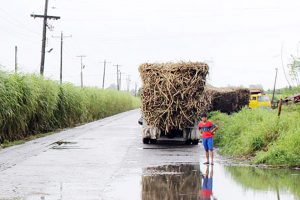How entrepreneurs can successfully apply to government TBIs

According to past applicants of technology business incubators (TBIs), agility, empathy, and a ready market are some factors Filipino entrepreneurs need to be successful “incubatees” of the programs.
A TBI assists technology-driven entrepreneurs in the start-up and early development stage of their venture.
Necessary factors
Agility is a must amid fast-changing trends, according to John Vincent Q. Gastanes, CEO of Farm Konekt Holdings, which provides a farm management platform for data support and system integration.
Equally important is empathy, he said in a March 4 SMS. At Farm Konekt, “our role is to provide the necessary service to prepare communities and train them to be adaptive to our clients…Service providers [such as ourselves] must know kick-a** service.”
Patience in the process and the proper mindset are likewise key.
“Revenue and market adoption are not easy, but – based on successful technology service providers around the world – it’s a matter of perseverance and grit to believe while others doubt,” he added.
Innovative products plus having a ready market with goes a long way, according to Maresciel A. Yao, president and CEO of AV88 Corporation, which manufactures wall panels made of bamboo.
“If they have a market to start with that would really benefit…the farmers, the fishermen, or people who are on that tier, then I think that can be both good for the business sector and the government agencies, plus the market they would be helping,” she said in a March 4 Zoom interview with BusinessWorld.
“Yun yung nakikita ko na puwede, kasi (That’s what is doable as I see it, because) everybody will be benefiting from everybody’s effort,” she added.
Both Farm Konekt and AV88 Corporation received assistance from the Department of Science and Technology’s Technology Application and Promotion Institute (DoST-TAPI)’s technopreneurship programs.
The DoST alone funds more than 50 technology business incubators in the country, a 2023 study by the Asian Development Bank found.
Application basics
The “basic requirement” for entrepreneurs applying for assistance to a TBI is a willingness to learn the ropes of running a business, said Marlon M. Tambis, assistant director of The Philippine Root Crops Research and Training Center (PhilRootcrops) and Assistant Professor I at Visayas State University (VSU).
VSU has a TBI in partnership with the DoST’s agriculture arm, the Philippine Council for Agriculture, Aquatic and Natural Resources Research and Development (PCAARRD), and PhilRootcrops.
“Aside from learning the technology or the technical aspects of producing their products, they must also learn the business-related aspects [of it,] like proper recording, costing, marketing, product packaging, promotion, etc.,” Mr. Tambis added on Messenger on February 21.
Applying as an incubatee is “almost similar” across the different TBIs, he also said in a February 19 Zoom call.
A technology licensing agreement will need to be signed before a transfer of technological know-how can occur, he said. Once officially in the program, an incubatee will then be trained based on where he is in his business journey.
The fees vary depending on the need, added Mr. Tambis, noting that the regular process involves an upfront fee of P10,000.
A royalty fee of between 1-3% is also needed for protected technologies.
Tailored support
“Maraming assistance puwede gawin ang TBI, depende sa need ng aming incubatee (A TBI can offer a lot of assistance, depending on the need of the incubatee),” Mr. Tambis said.
“Kung negosyante na siya, yung technical na lang about the product ang ibibigay namin (If the incubatee is already an established businessman, then all we need to do is train him on the technical aspects of the product),” he told BusinessWorld.
“Pero kung kailangan pa ng knowledge on how to start a business, puwede namin siyang tulungan sa marketing, promotion, at product design (But if he still needs knowledge on how to start a business, then we can also train him in other aspects, including in marketing, promotion, and product design),” he added.
Technology transfer
PhilRootcrops, together with the DoST-PCAARRD and the VSU, has been improving the value chain of sweet potato by turning the root crop into products like flour, powder, noodles, bread, ice cream, and fries.
These are examples of food products that the VSU TBI can help entrepreneurs learn how to replicate for their own businesses, Mr. Tambis shared.
A plan is already in the pipeline to offer the use of sweet potatoes to Potato Corner, a food cart franchise, he told BusinessWorld.
Since mentorship and market linkages are included in TBI programs, entrepreneurs who are willing “can be taught how to do this,” added Mr. Tambis. – Patricia B. Mirasol




